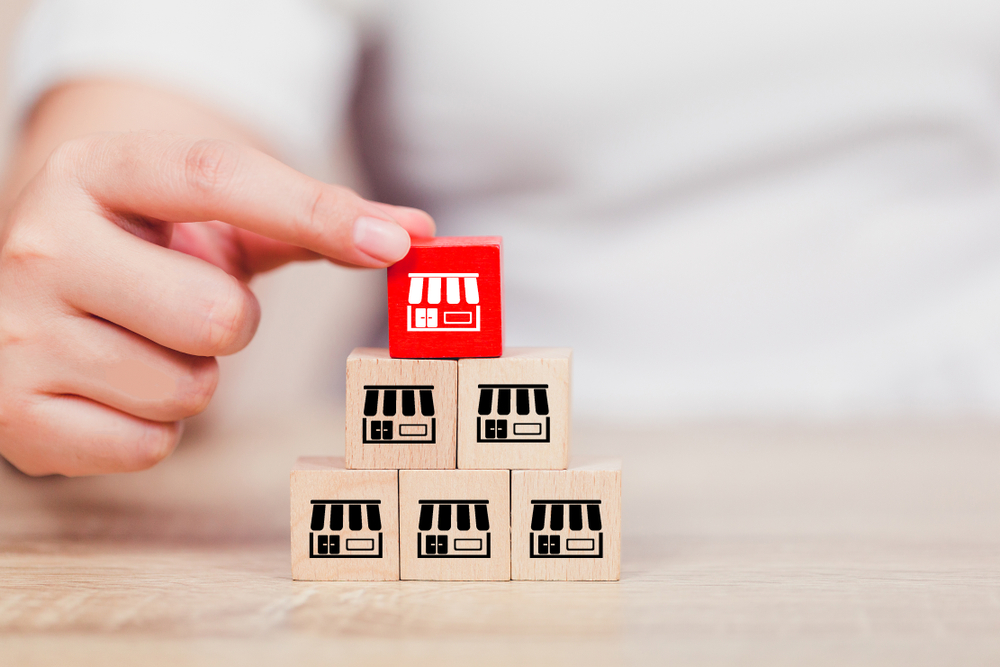Franchises are a great opportunity to have a turn-key business, but how do franchises work?
Economy crashing, possible recession, unemployment, unsteady market, there are many reasons why to look into a franchise, we’re in hard times and it may continue for some time.
Now might be a great time to look into franchises as a possible new business avenue if your current revenue streams have dried up or completely vanished.
Owning a business is the American Dream, with no boss, no one to report into, and no one to tell you when to come into the office. Franchises are a great way to become a boss with much less risk than starting a completely new venture on your own.
Let’s break down your options for starting a business
- Starting your own business and brand from scratch
- Purchasing an existing business
- License an existing brand and business model from an already successful company
How Do Franchises Work?
Franchises work like this
- A company offers the opportunity to utilize their brand, supply chain, trade secrets, and product to others for a fee.
That’s it! Got it?
No, seriously, there is more to the puzzle.
Once one has committed to pursuing a franchise purchase there are a few steps to consider.
- Financing
During any time, but especially in these trying times, it is imperative to understand your finances. Franchises are costly and many owners do take on debt to cover the franchise fees and total investment costs.
- Choose your industry
Choose recession-proof categories, preferably ones that you enjoy and may have experience in. If you enjoy fast food and worked in fast-food before, maybe this may be the right industry for you.
- Choose specific franchise companies and make your decision
Research, research, research and create a list of your desired franchises. After mulling Franchisor Disclosure Documents (FDD), calling existing franchisees, and franchisor visits it is time to make a decision, purchase a franchise and become a franchisee!
- Corporate-sponsored training
Training can range from online to in-person, on-site training for many months.
Here are McDonald’s training requirements
- 12-18 months training in a restaurant
- Self-directed, part-time training for 20 hours per week
If you can imagine, a franchisor is not going to allow a franchisee to run the business however they like, they have brand standards so a customer won’t know the difference between a corporate and franchise-owned location. That is the goal.
- On-going support
Once you are up and running, most franchisors should offer on-going training and support to their franchisees. It is in their best interest to see the continued success not only financially but also to broaden their brand reach and ensure you have your needs met.
What Is A Franchise?
Does option number three appeal to you? Well, it’s Franchising.
Did you know just about all of your favorite nationwide businesses have some type of franchising opportunity?
A franchise means the location is owned by an individual or entity outside of ownership of the corporate entity.
Franchises are very attractive to wanna-be business owners as the brand recognition is already built through years of hard work of others. But this luxury comes at a cost, more on that later.
Why Choose A Franchise?

Let’s imagine for a moment to understand the appeal of franchises:
You live in a small town and a new restaurant opens up.
It’s McDonald’s.
Now, you’ve had McDonald’s plenty of times before in larger cities and you know it’s tasty and you know the experience. You stop in on day one without hesitation as you are familiar with the quality. You pick up a salad, of course.
Next, imagine in the same scenario but this time the restaurant going up is named Joey’s Diner.
You know Joey is a good guy, he owns the auto shop in town, but just because Joey is a good guy, will his food be good? Joey is starting this new endeavor and needs to figure out many things on his own.
Joey needs to build his brand, story, creative, marketing messages, menus, pricing, margins, figure out suppliers, licensing, food codes… is your head spinning yet? Mine sure is!
4 Main Components of Franchising

Before we go any further and get into the minute details, there are a few main concepts that will be helpful to understand:
1. Franchise Fee
Just about every business that offers franchising as an option will have a franchise fee. This is a one-time fee, upfront that ensures the support of corporate; oftentimes with marketing, finances, operations, human resources, etc. They are allowing you to utilize their brand, they want to ensure the franchise owner is serious and can pay up.
2. Initial Investment
The initial investment is over and beyond the franchise fee. This investment does not directly go to the franchisor; rather, it goes to building out a storefront including materials and labor, materials, and resources required to get the franchise off the ground.
3. Ongoing cash flow
This is simply the amount of money required to keep the franchise running. There are oftentimes yearly franchise fees and many other situations that require on-going financing.
4. Personal Net Worth
Many franchisors will require a net worth check and oftentimes there is a minimum requirement. Some franchisors have a liquidity requirement in place of a net worth requirement.
Now, to the details.
Your Franchise Questions Answered

Before leaping into becoming a franchisee you might have many questions such as:
1. Why would a company offer an opportunity to purchase a franchise?
There are is an abundance of different business segments and types of industries to plunge into. It makes sense for a successful business owner to offer franchise opportunities as they can continue to expand and scale their brand, oftentimes in new geographic markets, and they collect those valuable up-front and on-going fees and commissions all while not taking up too much of their time.
2. Why would I buy a franchise?
Franchises offer the support and resources of a large corporation with the independence of owning a small business.
Purchasing a franchise is not like making a career change. When you change careers, which most people do seven times in their lifetime, you aren’t going to start at the top. You’re going to start at the bottom of each industry.
When you purchase a franchise, it allows you to get into something new, all while making you the boss overnight without the need to spend years working your way up into management positions.
3. How much does it cost to buy a franchise?
Many different franchise industries have their own start-up and total investment costs.
- Restaurants
- Fast Food restaurants
- Hotels
- Convenience stores
- Storage franchises
The most expensive franchise might be hotels with DoubleTree by Hilton as an example, which has a $22 million-$79 million initial investment.
On the cheaper side, a McDonald’s may cost between $1-$2 million.
While a home-based franchise through the cleaning business of JAN-PRO costs as little as $4,000.
Costs associated with total up-front investments may include:
- Equipment
- Land/rent
- Build out/remodeling
- Signage
- Inventory
- Working capital
4. What are the on-going costs of a franchise?
In addition to an initial investment fee, there will be on-going costs such as royalties. A royalty will be a percentage of profits that are paid monthly. A typical royalty may be between 2%-10%. Other fees might include on-going franchise fees, marketing/advertising fees, and required purchases of products or Services.
5. Is it smart to get into franchising?
The answer is that it depends. Before jumping into something you need to do a lot of research like you are doing right now by reading this article.
The numbers show it may be a better decision than building your own business from the ground up.
According to the Bureau of Labor Statistics: about 20% of small businesses fail within their first year and that number balloons up to 50% by year five.
6. Will I make money quickly by franchising?
Franchises are known for having a relatively high return on investment expectations. People may be drawn to the allure of franchises by being able to skip the steps of years of hard work building a brand and piggybacking on the success of others.
Think about it this way, potential franchisors want to paint the business potential and opportunity in the best light possible. In some cases, the business may be oversold and ultimately underdeliver based on the lofty expectations.
Franchises are not fail-proof. Roughly 5%-10% of all franchises fail due to a sinking market, a poor location, or another externality.
It may take 2-3 years to see a profit from the purchase of a franchise, or even longer in some instances.
7. Is franchising the best investment I can make?
The best time to start a new business is often today if your finances and desires align. The ROI range of a franchise is normally between 25 and 50 percent, maybe even higher for innovative companies. There will always be better opportunities in the marketplace, but one where you license an existing, successful brand and get to be the boss overnight, is surely desirable.
There are so many types of franchises one can purchase and open from low-cost options to high-end, established nationwide brands.
In a previous Ventured article, we broke down the top 11 franchises to buy and their costs.
